
Homework is an important aspect of a student’s academic journey. It can involve a variety of tasks, such as solving math problems, writing essays, or preparing presentations.
But homework is capable of expanding the learning process outside of the classroom.
This blog will discuss what homework is, what it accomplishes, what kinds of homework students receive, the value of homework, and how it contributes to learning and responsibility in a student’s life and learning.
Contents
What is Homework?
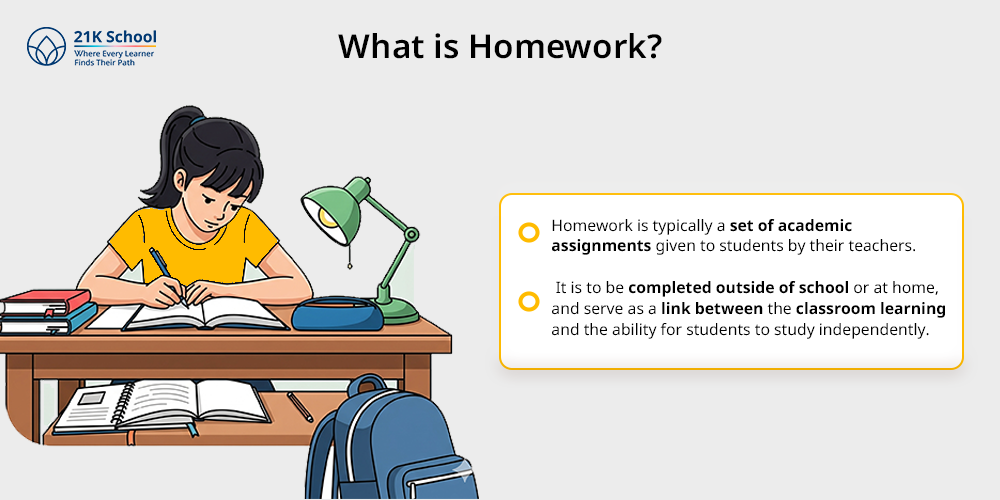
Homework is typically a set of academic assignments given to students by their teachers. It is to be completed outside of school or at home, and serve as a link between the classroom learning and the ability for students to study independently.
Homework helps solidify a student’s learning through practice, builds their study habits and skills, and fosters responsibility for their learning.
It can come in the form of worksheets, reading, creative projects or revising for tests and quizzes. It is a key tool in supporting and guiding the process of continuous learning .
Also Read: The Importance of Homework in Students Life .
What is the Purpose of Homework?
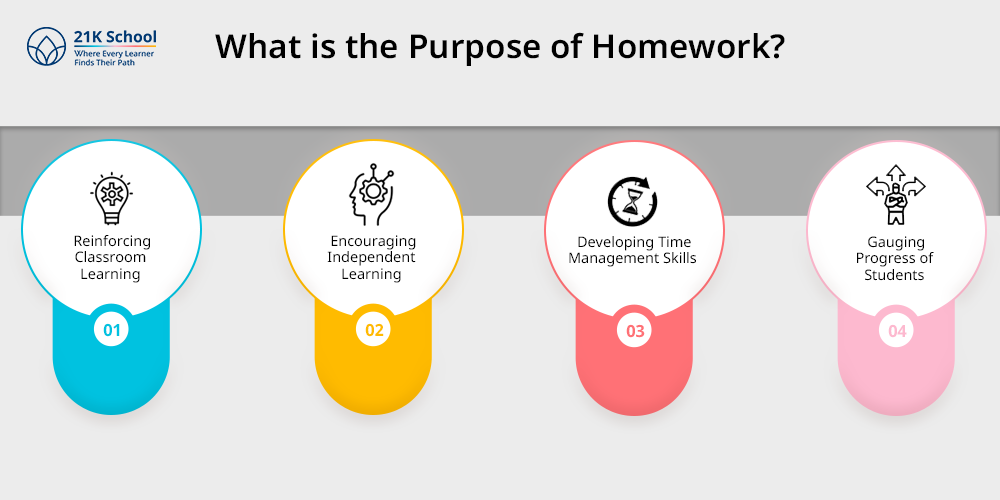
There are many ways homework can positively contribute to a student’s learning:
1. Reinforcing Classroom Learning
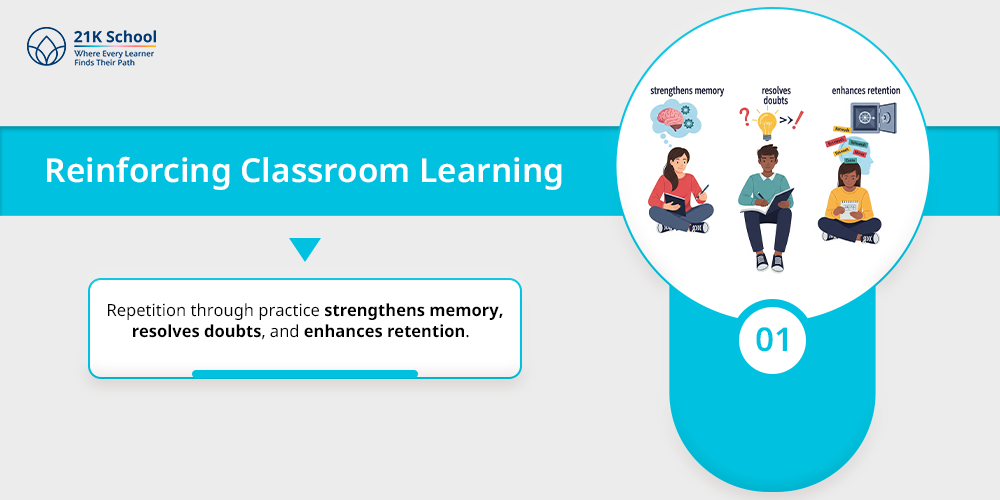
Homework allows students to apply the concepts they have learned in class. Repetition through practice strengthens memory, resolves doubts, and enhances retention.
2. Encouraging Independent Learning
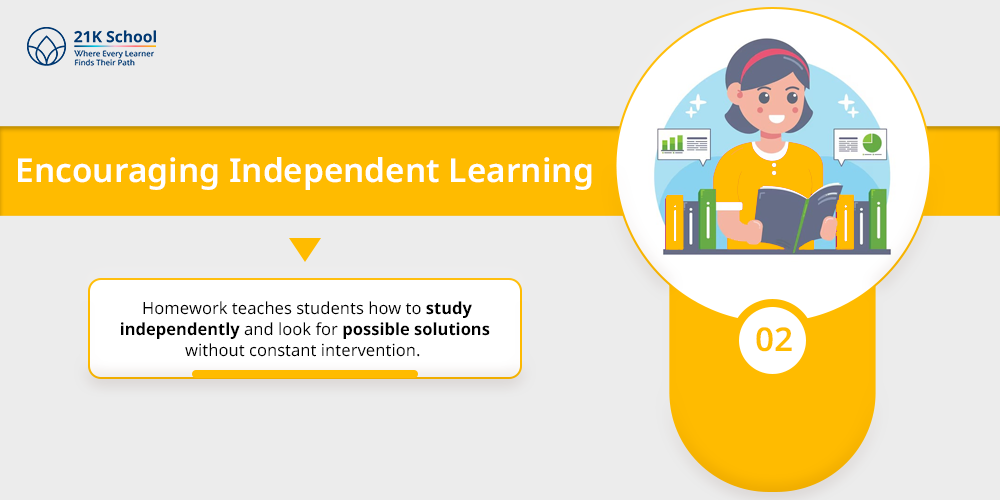
Homework teaches students how to study independently and look for possible solutions without constant intervention. It gives learners more time to absorb the material at their own pace without the distractions of a classroom environment.
Learn how to make a child study independently .
3. Developing Time Management Skills
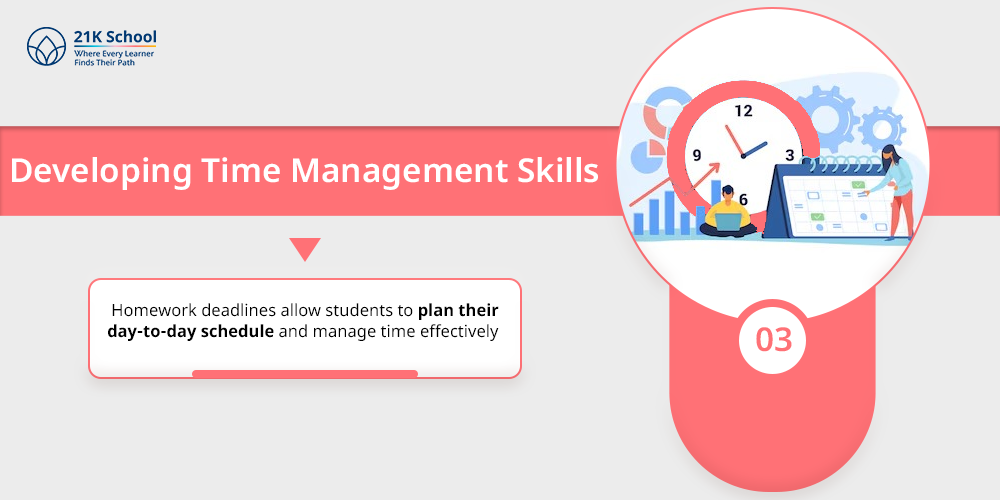
Homework deadlines allow students to plan their day-to-day schedule and manage time effectively. This is a necessary skill set that they will need not only to be successful in school, but also to manage their workload later on in life.
4. Gauging Progress of Students
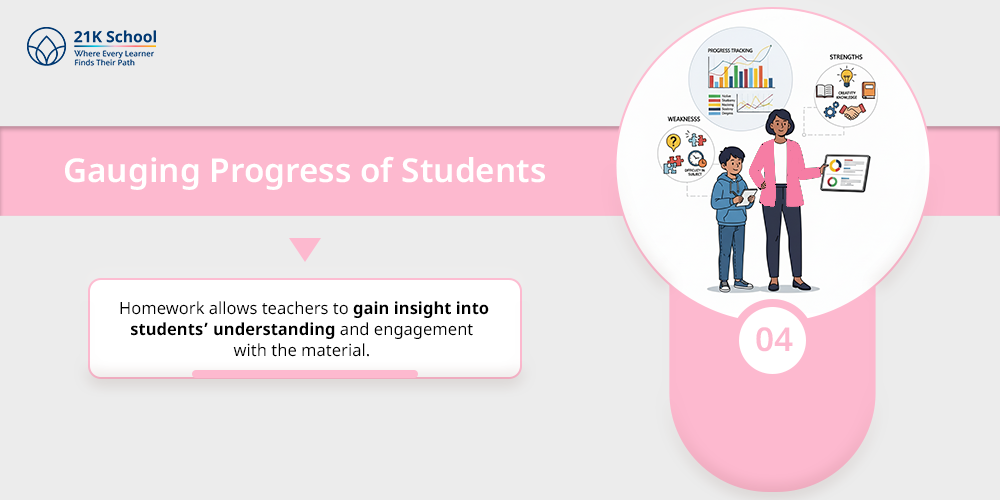
Homework allows teachers to gain insight into students engagement and understanding with the material. It can also highlight which areas of study students are struggling with. With this information, educators can make changes in the material accordingly.
Types of Homework for Students
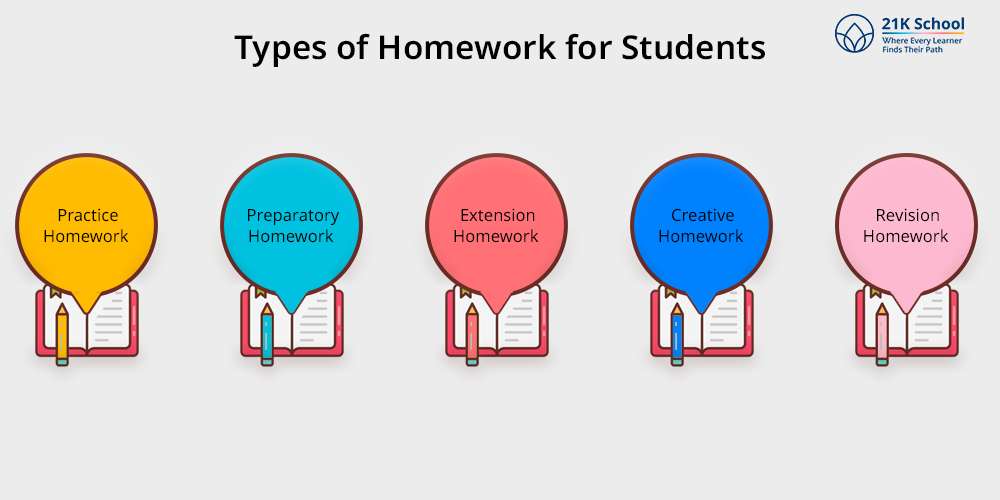
Not all homework is the same. Teachers assign different types of homework based on the learning outcomes they wish to achieve. Here are some common types of homework:
1. Practice Homework
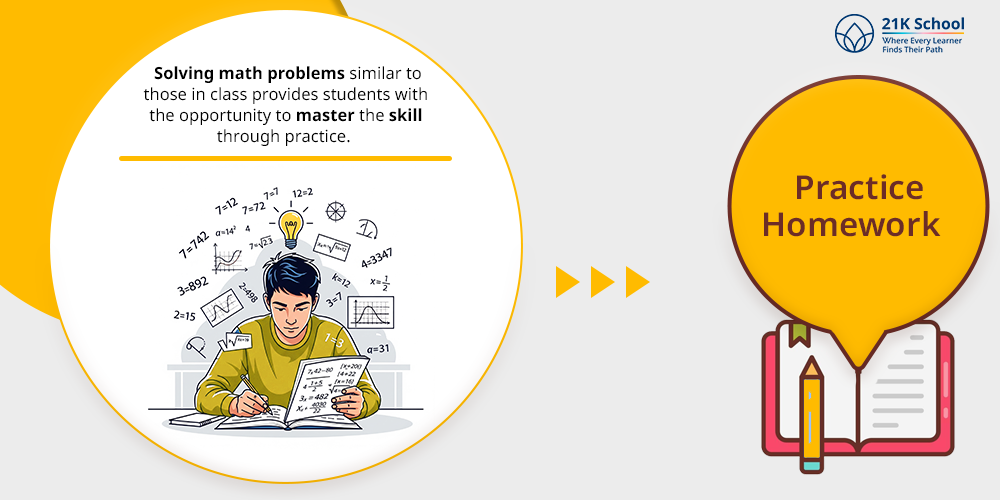
Practice homework helps reinforce new skills. For example, solving math problems similar to those in class provides students with the opportunity to master the skill through practice.
2. Preparatory Homework
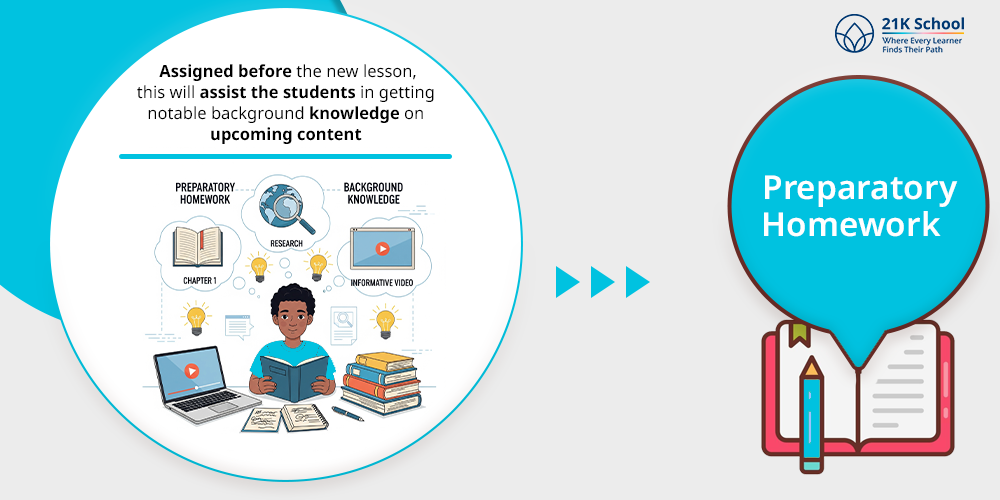
Assigned before the new lesson, preparatory homework will assist the students in getting notable background knowledge on upcoming content, such as reading a chapter or watching an informative video, before it is taught with everyone else in class.
3. Extension Homework
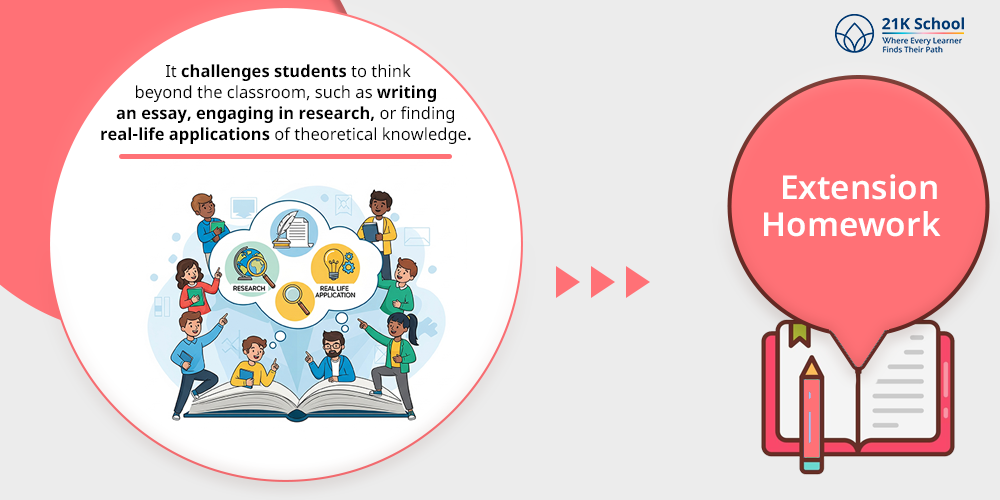
Extension homework challenges students to think beyond the classroom, such as writing an essay, engaging in research, or finding real-life applications of theoretical knowledge .
4. Creative Homework
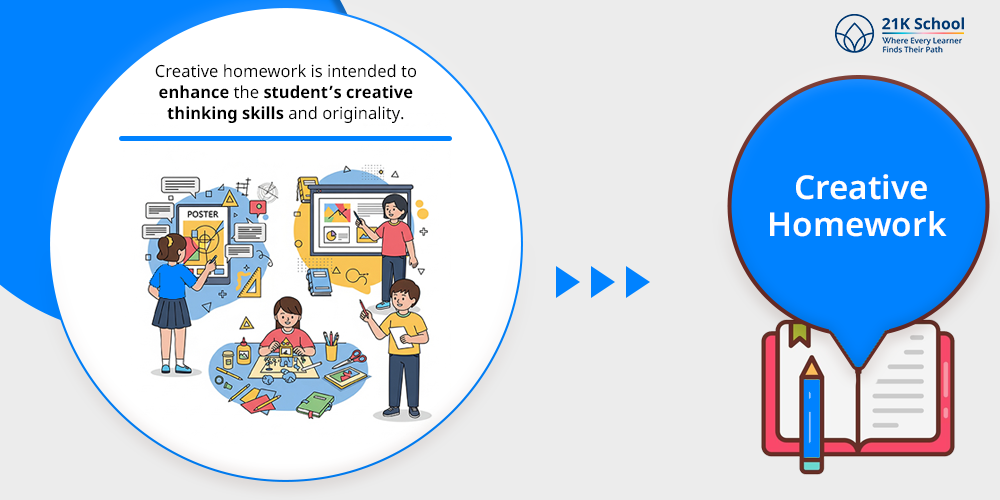
Creative homework is intended to enhance the student’s creative thinking skills and originality. It consists of designing posters, creating models, or making presentations, which apply a hands-on touch to students’ learning.
5. Revision Homework
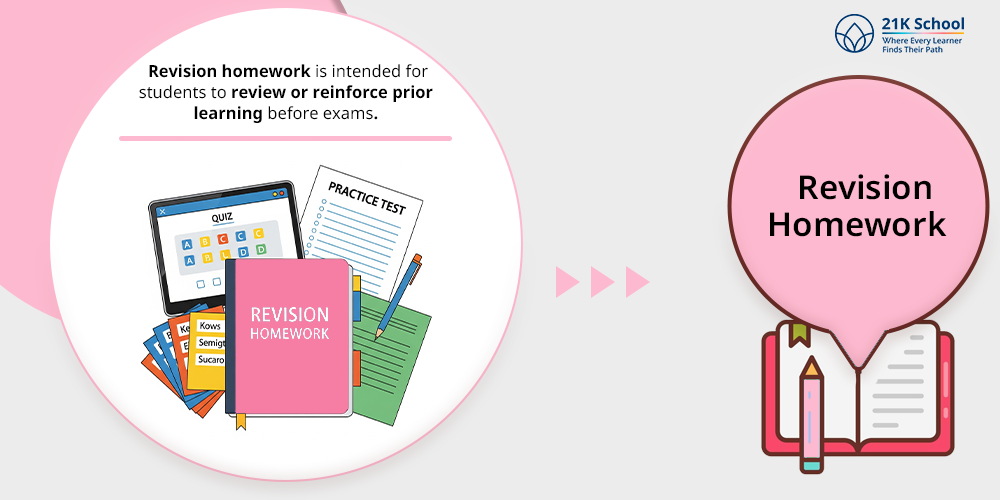
Revision homework is intended for students to review or reinforce prior learning before exams. Activities could include quizzes, flashcards, or practice tests, which have great potential for long-term memory retention.
Advantages of Homework
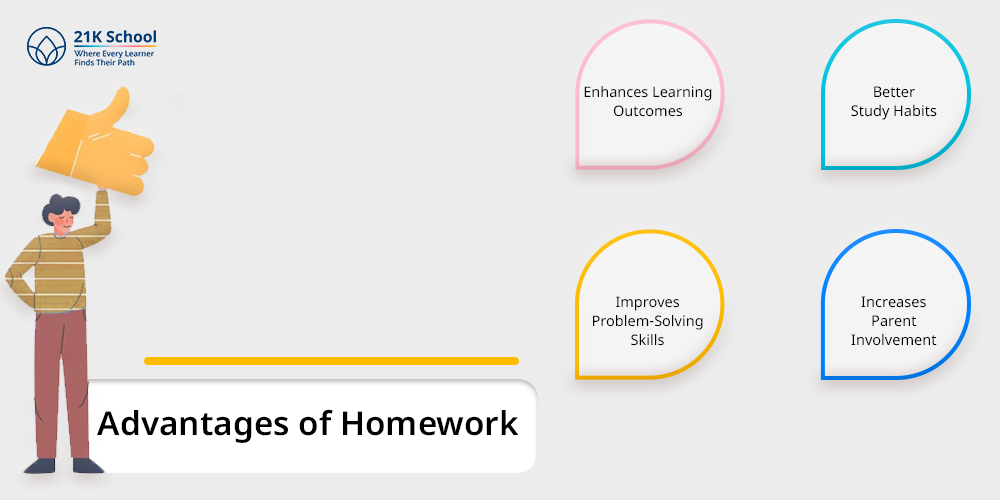
Homework can benefit students through their education and personal development in a variety of ways:
1. Enhances Learning Outcomes

Students who make a regular habit of doing their homework better understand the content, produce higher grades, and ultimately get more out of their education. It also gets them ready for the next part of the syllabus .
2. Better Study Habits

Homework, when done regularly, can help students develop structured study habits . Doing homework trains students to set goals, track their progress, focus, and ultimately develop student discipline .
3. Improves Problem-Solving Skills

Many homework assignments push students to look at problems differently, think critically, solve problems, and make decisions without guidance, which improves analytical skills .
4. Increases Parent Involvement

Homework provides an opportunity for parents to have a glimpse into their child’s learning. In addition, homework helps strengthen the home-school connection and keeps parents updated on their child’s learning.
Typical Difficulties Students Experience with Homework
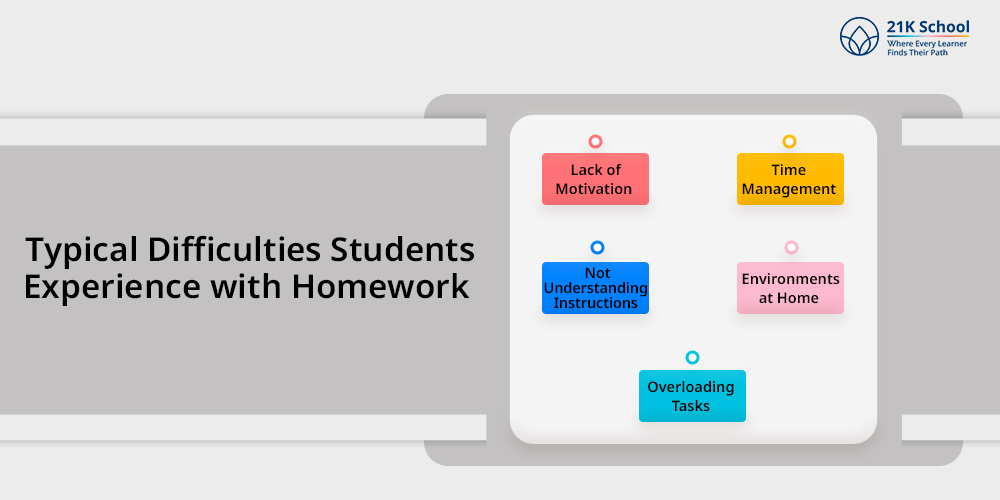
While homework provides many benefits, students struggle with their homework regularly. Understanding the issues students face will allow educators and engaging adults to better assist them:
1. Lack of Motivation
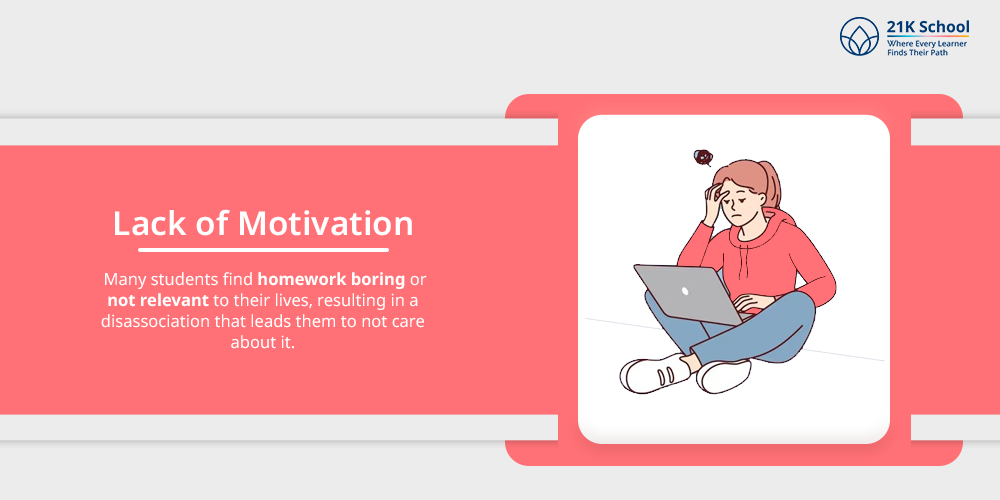
Many students find homework boring or not relevant to their lives, resulting in a disassociation that leads them to not care about it. This leads to demotivation when it comes to completing assignments.
2. Time Management

There are many competing demands for students’ time. Along with homework, they have to balance social activities, family obligations, and individual interests.
Check out: 11 Tips to Do Your Homework Fast .
3. Not Understanding Instructions
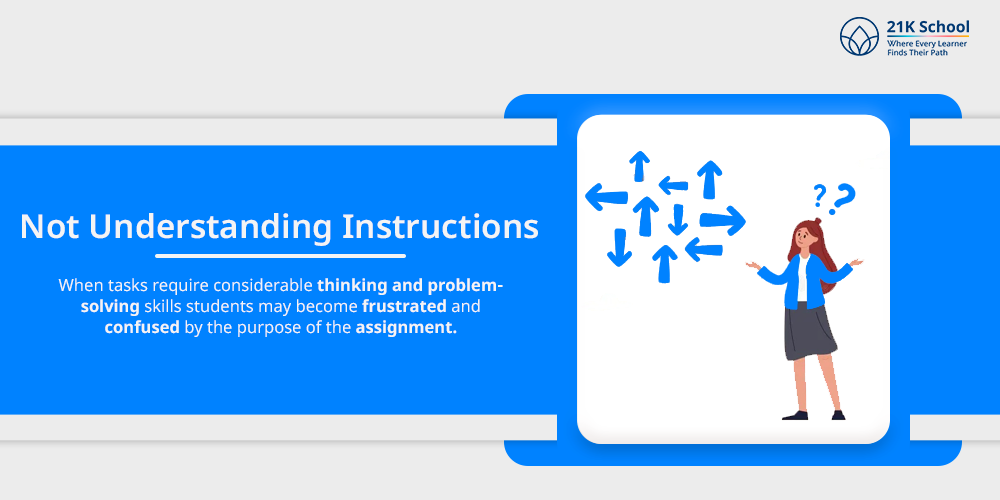
When tasks require considerable thinking and problem-solving skills students may become frustrated and confused by the purpose of the assignment, especially in subjects like maths or science.
4. Environments at Home
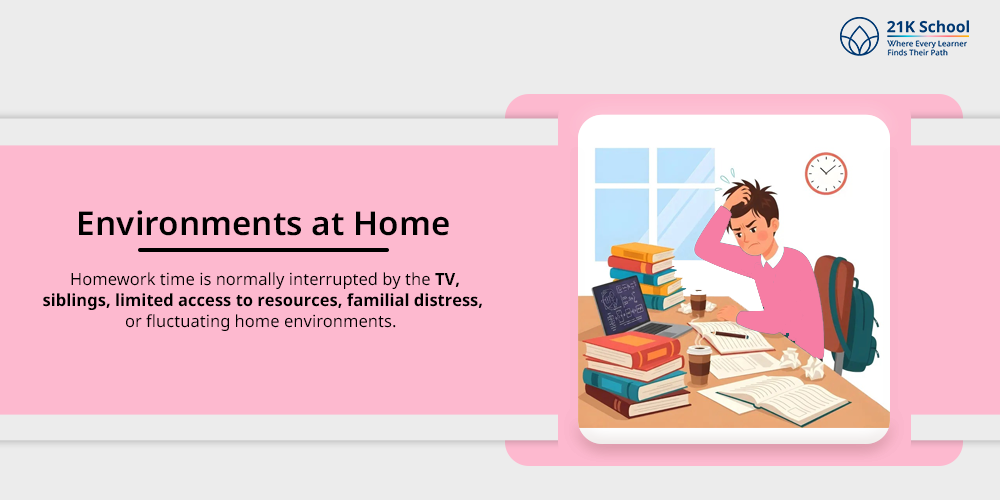
Not all students have a positive learning environment at home. Homework time is normally interrupted by the TV, siblings, limited access to resources, familial distress, or fluctuating home environments.
5. Overloading Tasks
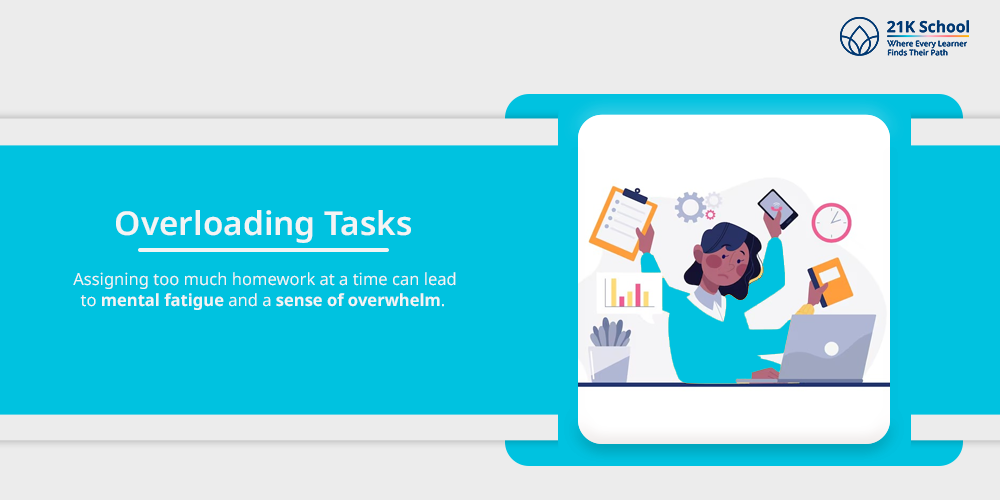
Assigning too much homework at a time can lead to mental fatigue and a sense of overwhelm. It can also force students to take time away from hobbies, self-care and sleep.
Ways to Make Homework Time More Productive
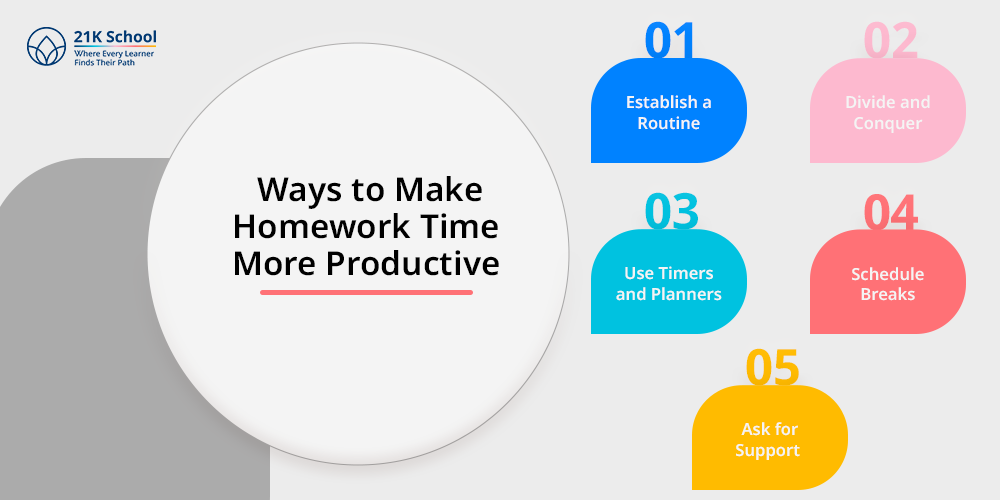
Making homework time more organised and less stressful can help the student stay focused and productive. Here are a few things you can try:
1. Establish a Routine
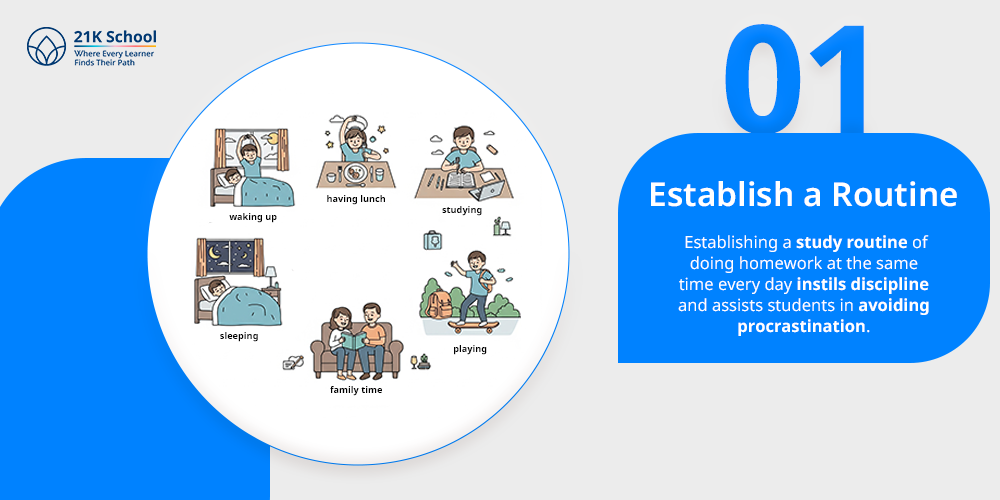
Establishing a study routine of doing homework at the same time every day instils discipline and assists students in avoiding procrastination.
2. Divide and Conquer
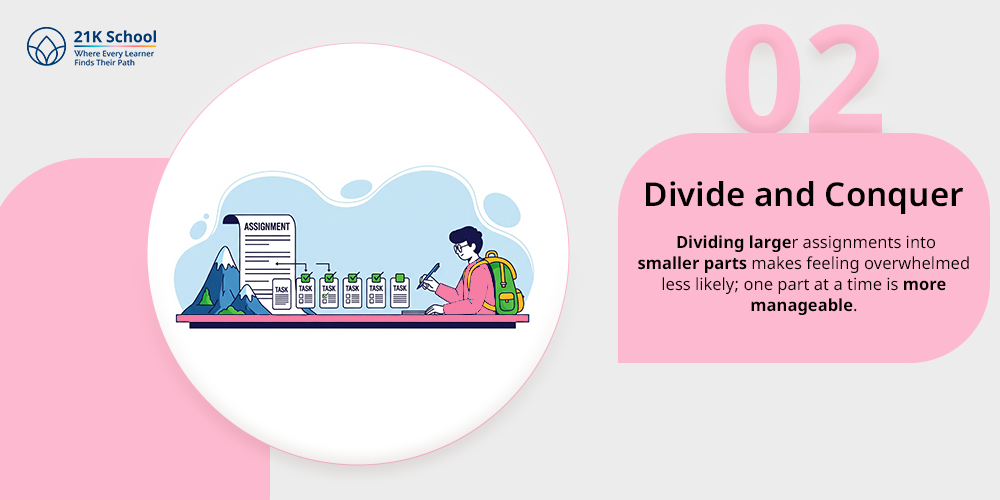
Dividing larger assignments into smaller parts makes feeling overwhelmed less likely; one part at a time is more manageable.
3. Use Timers and Planners
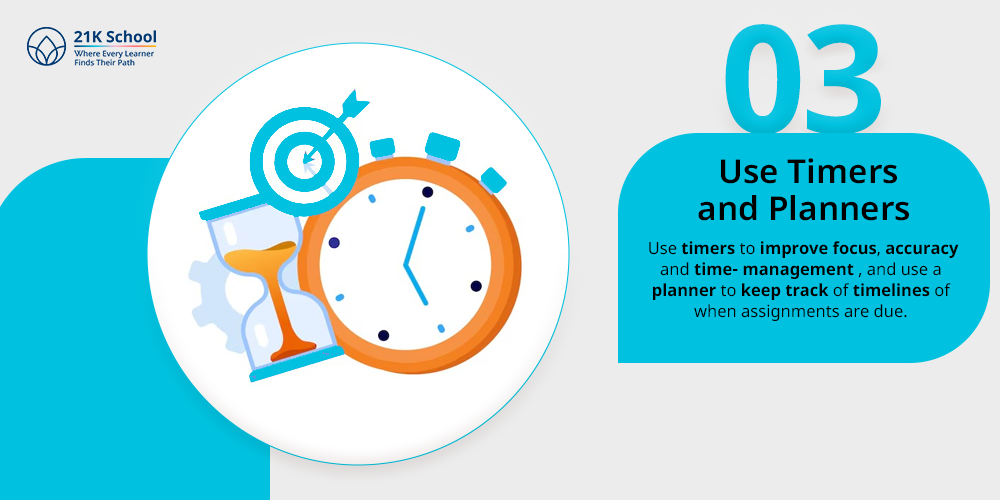
Use timers to improve focus, accuracy and time-management , and use a planner to keep track of timelines of when assignments are due. This helps in reducing the stress of meeting deadlines last minute.
4. Schedule Breaks
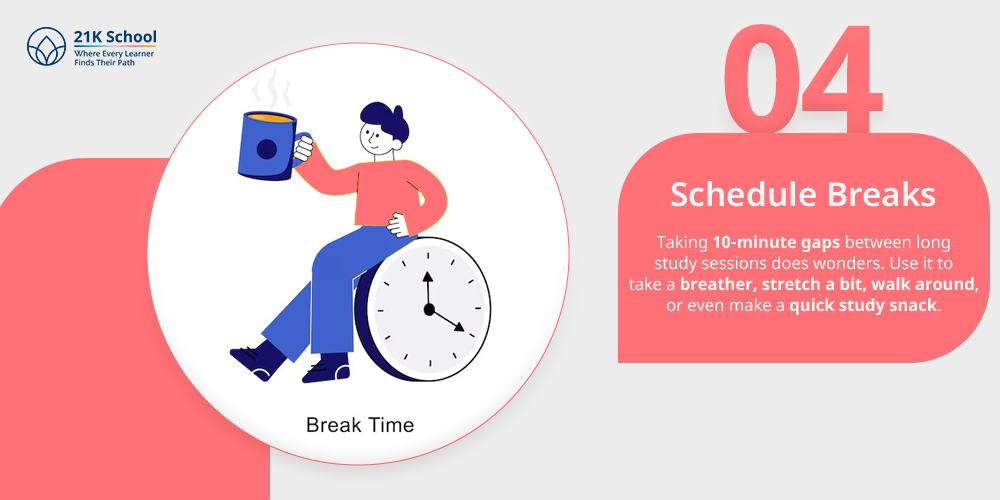
Students need breaks so they can recharge and avoid burning out. Taking 10-minute gaps between long study sessions does wonders. Use it to take a breather, stretch a bit, walk around, or even make a quick study snack.
5. Ask for Support

Encouraging learners to follow up with their parents, teachers, or peers helps them with doubts they might have regarding their homework. It develops a support system for students.
Also read: Top 10 Homework Tips to Become an A+ Student
Conclusion: Thinking Differently About Homework and Its Role in Education
Homework isn’t just about assignments; it’s about growth, responsibility, and lifelong learning habits.
When balanced, purposeful, and supported by teachers and parents, homework becomes a powerful tool that enhances education beyond the classroom.
Rethinking how we assign and approach homework can help students not only perform better in school but also become more confident, organised, and independent learners.



